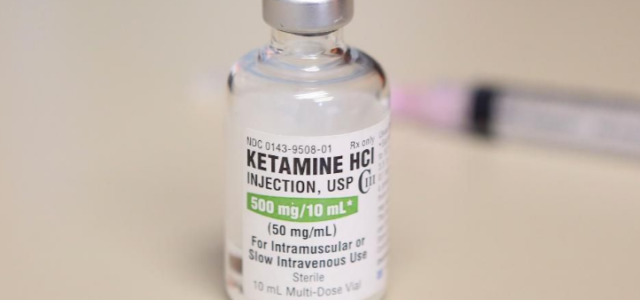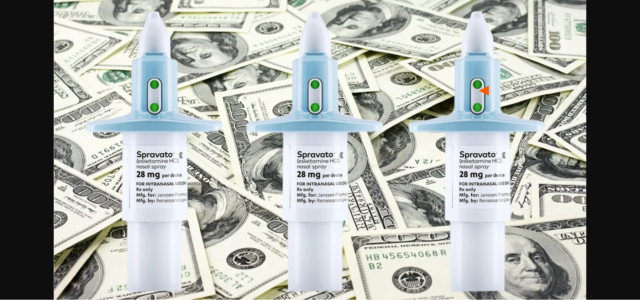Articles About PTSD from Lori Calabrese, MD | The Ketamine Blog
Our purpose in offering these articles about PTSD is to reduce stigma. It’s also to help the reader better understand the causes and symptoms of PTSD. Better understanding helps each of us to offer support to those in our lives who need understanding for episodes they’re unable to prevent.
Post-traumatic-stress-disorder (PTSD) occurs following a terrifying experience, in some people. It prevents the sufferer from recovering after witnessing a traumatic event. PTSD can last for months or years. In addition, memories of the event can trigger extreme physical and emotional reactions.
Symptoms of PTSD
The scars that remain from active combat or other traumas cause recurring memories that seem as real as when they first happened. Originally known as “shell shock, PTSD was thought to be exclusive to soldiers returning from battle. But over time, it became clear that PTSD was a disorder anyone could develop who’d been through a traumatic experience.
When someone suffers from PTSD can have recurring flashbacks of the terror they experienced during the traumatic event, as well as intense nightmares. They may feel afraid, or intensely frightened, whether there is anything presently threatening or not. It’s as though their “fight-flight” response malfunctions, and a small stimulus can bring all the horror of the initial experience back instantly.
PTSD affects around 8 million people a year in the US. These people who suffer have been far too often misunderstood and misjudged for their reactions.
Articles About PTSD Treatment
Talk therapy
The most widely used treatment for PTSD is talk therapy. By talking through the traumatic memories, as well as those moments that seem to trigger the flashbacks, the individual can sometimes learn a healthier response to the trigger.
Medications
Medicines are used in some cases to help patients cope with their anxiety and anger in the face of an unrelated situation that stimulates the reaction, i.e., a trigger. Since adrenalin is a hormone that’s released in overabundance with each trigger point, addressing the individual’s hormonal reactions sometimes improves relief.
IV Ketamine infusions
This treatment makes a remarkable difference in many cases of PTSD. The Veterans Administration works with IV ketamine to treat PTSD in combat veterans, and has for years with excellent results. And IV ketamine shows remarkable outcomes for people with a wide variety of PTSD causes. PTSD from major disasters, to domestic violence, assault, battery, and rape, to catastrophic illnesses, transportation accidents, and other disastrous injuries.
IV ketamine isn’t for everyone. No treatment is. But chances are it will help you enjoy a dramatic relief from symptoms of PTSD.
More studies show IV ketamine infusions can also prevent PTSD in combat military and first responders. Extraordinary.
By offering these articles about PTSD, we hope to increase understanding and compassion for those who suffer, and drive back stigma with factual information.
Keep reading…

A new study finds that a nasal spray formulated from the anesthetic ketamine is a safe, fast-acting and effective treatment for treatment-resistant depression. Researchers presented the findings this week at the annual meeting of the American Psychiatric Association. Esketamine, the intranasal formulation of ketamine, recently received FDA approval as a depression treatment when used with an oral antidepressant, based […]
Continue Reading

Johnson & Johnson patented a form of the psychedelic with less research and a ridiculous price tag. In a popular and public move, the United States’ Federal Drug Administration recently approved intranasal esketamine, one of the components of the psychedelic ketamine, for treatment-resistant depression. The nasal spray costs nearly $900 per dose—or roughly $7,000 for the first month […]
Continue Reading

I just returned from the American Psychiatric Association’s 2019 Conference in San Francisco. This is the 175th Anniversary of the APA, and look how far we’ve come. The theme this year was: Revitalize Psychiatry – Disrupt – Include – Engage – Innovate. and it certainly provided fodder toward those goals. It was an informative and […]
Continue Reading

“Though I am often in the depth of misery, there is still calmness, pure harmony, and music inside me.” —Vincent Van Gogh May is Mental Health Awareness Month, and I’ve been thinking about how to disrupt the stigma of “mental illness.” It’s a term I don’t like – but it’s still used throughout the world, […]
Continue Reading

We celebrated Mother’s Day yesterday. What was it like for you? We truly hope you enjoyed a day of love and hugs as you celebrated with your children. But if you’re a mom who has lost a child, and especially if you’ve lost a child by suicide, this is a day that reminds you of […]
Continue Reading

Originally published in Brain & Behavior Magazine, July 2017 An important discovery has been made at the University of Pittsburgh. It raises the prospect that there may be an entirely new way of relieving major depression in people who repeatedly have failed to respond to existing treatments—people at elevated risk for suicide whose lives are often unrelentingly dark […]
Continue Reading

No Wonder Treatment Resistance Has Been Such a Mystery! Clue: Look in the Cerebral Spinal Fluid! A man in his forties, Greg had never experienced life without depression. Treating mood disorders didn’t seem to be his psychiatrist’s forte. (Oh boy…) At least not in his case. Every accomplishment, every failure, struggled for expression beneath the […]
Continue Reading

In a world where things go wrong and people get sick, every once in awhile something comes along that makes things right again. I’m talking about something that’s so dramatic in its solutions we’re tempted to call it a “miracle.” But we won’t. We’ll call it a game-changer. Because IV ketamine treatment is changing history. […]
Continue Reading

The anesthetic-cum-party drug restores the ability to make connections among brain cells. The Food and Drug Administration’s approval last month of a depression treatment based on ketamine generated headlines, in part, because the drug represents a completely new approach for dealing with a condition the World Health Organisation has labelled the leading cause of disability […]
Continue Reading

“If I see far, it’s that I stand on the shoulders of giants.” If you find yourself feeling alone and forgotten in your symptoms, feeling that there’s no one who really cares, please let me emphasize that there are hundreds, even thousands, of neuroscience researchers, medical doctors with PhDs, biochemists, psychopharmacologists, and psychiatrists who have […]
Continue Reading









